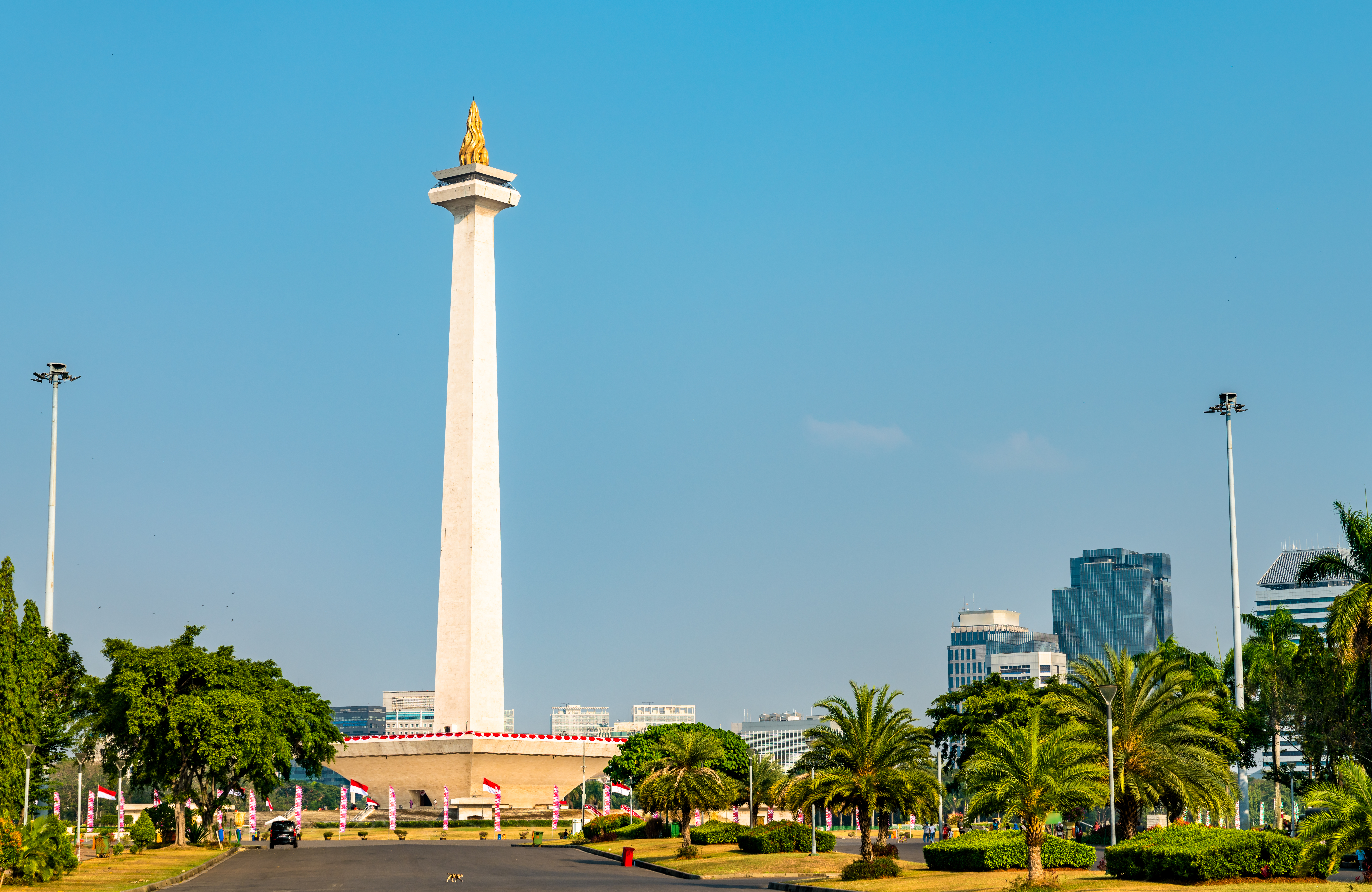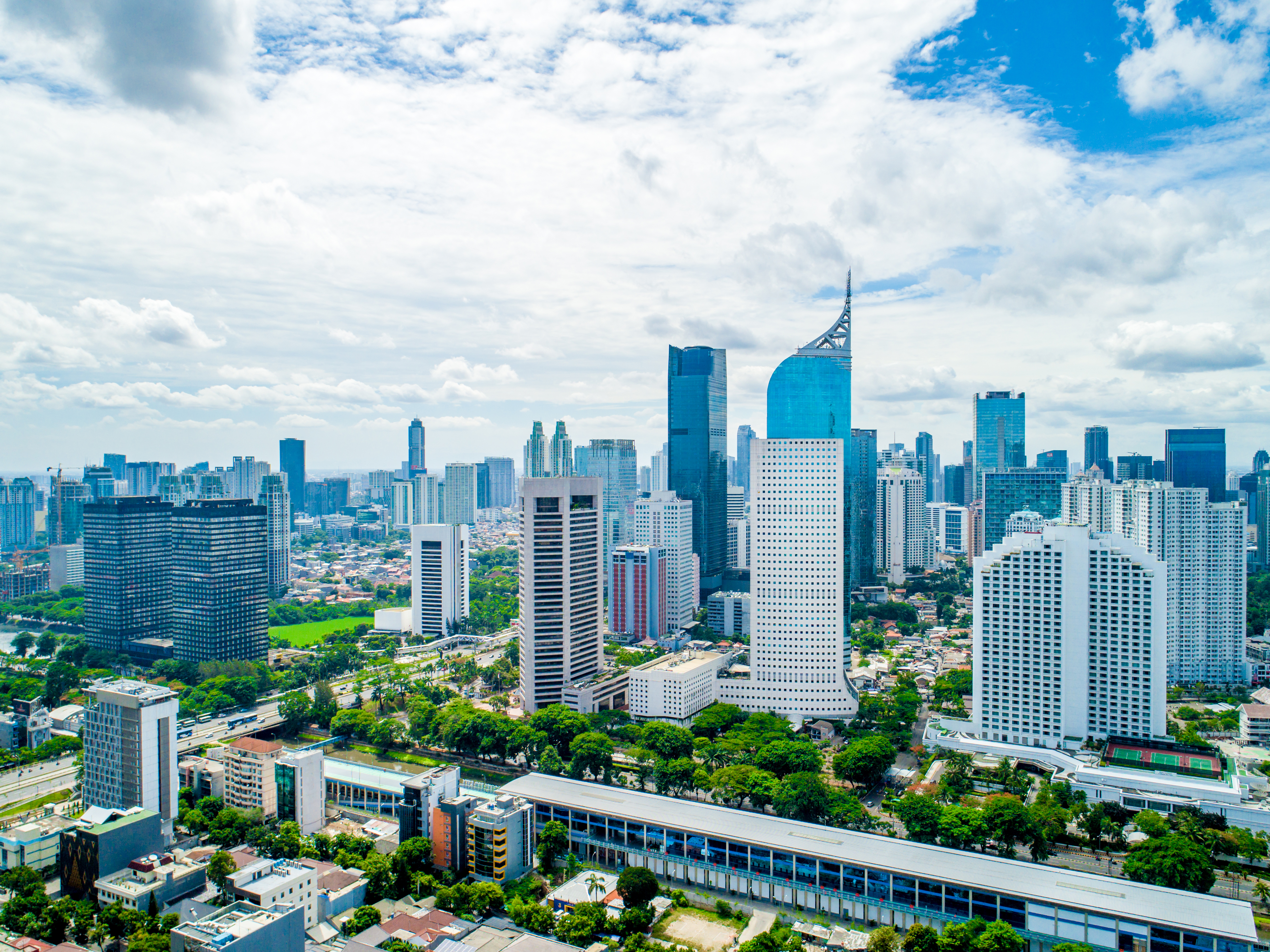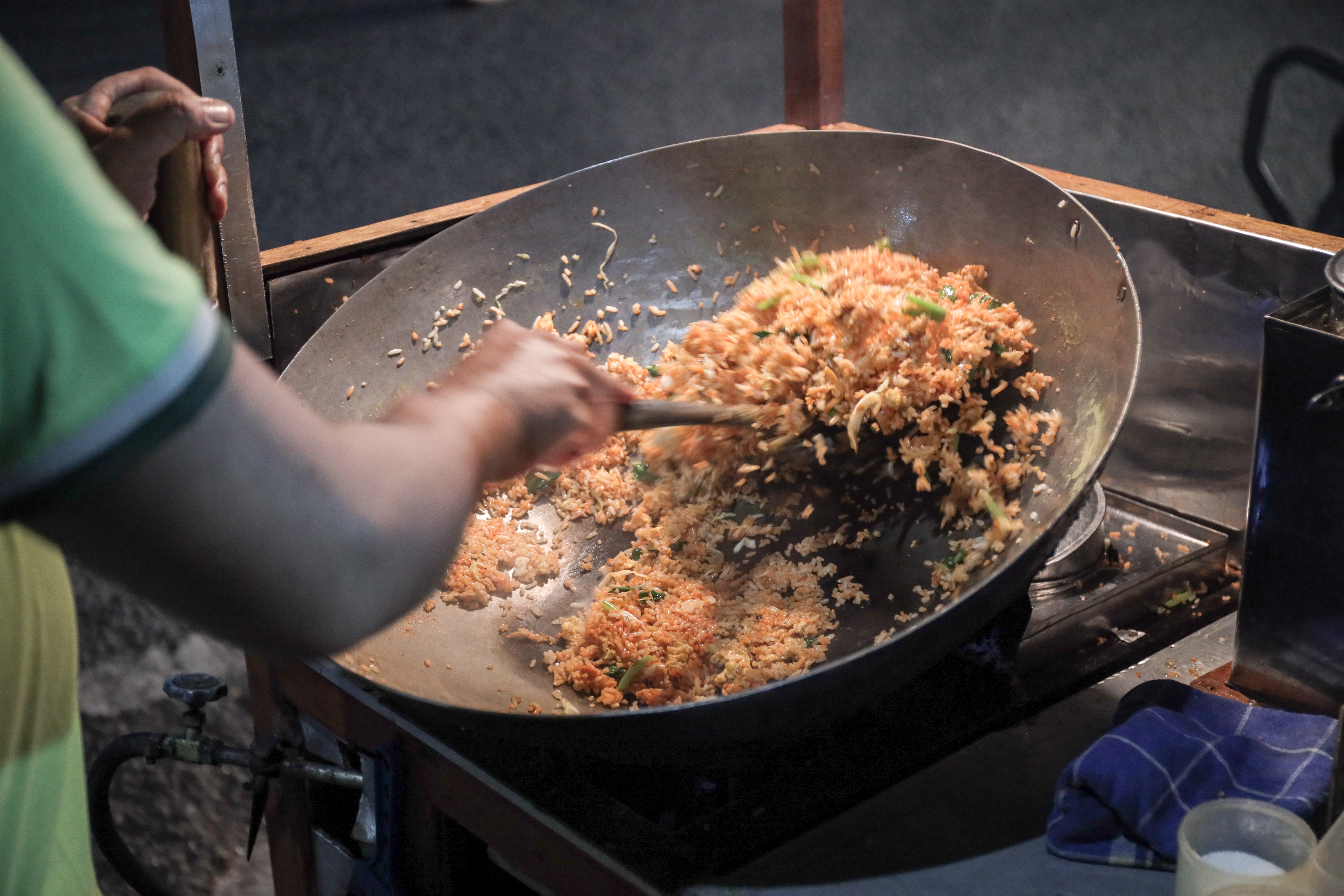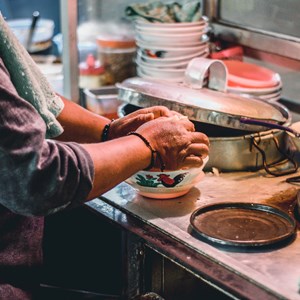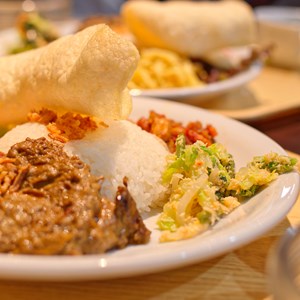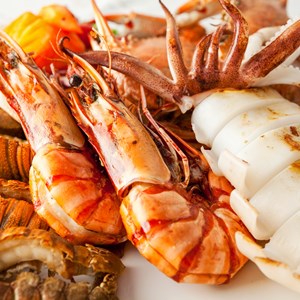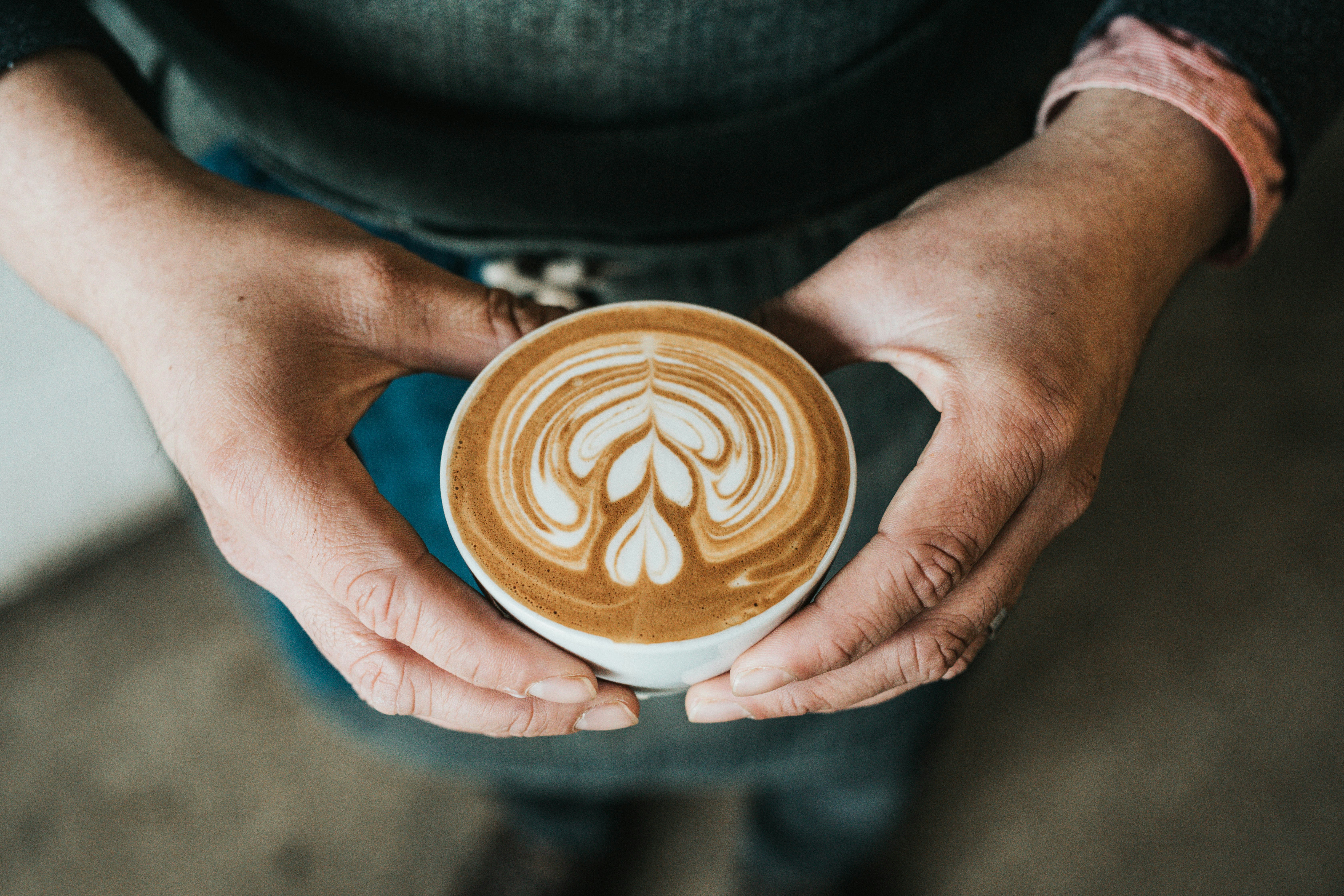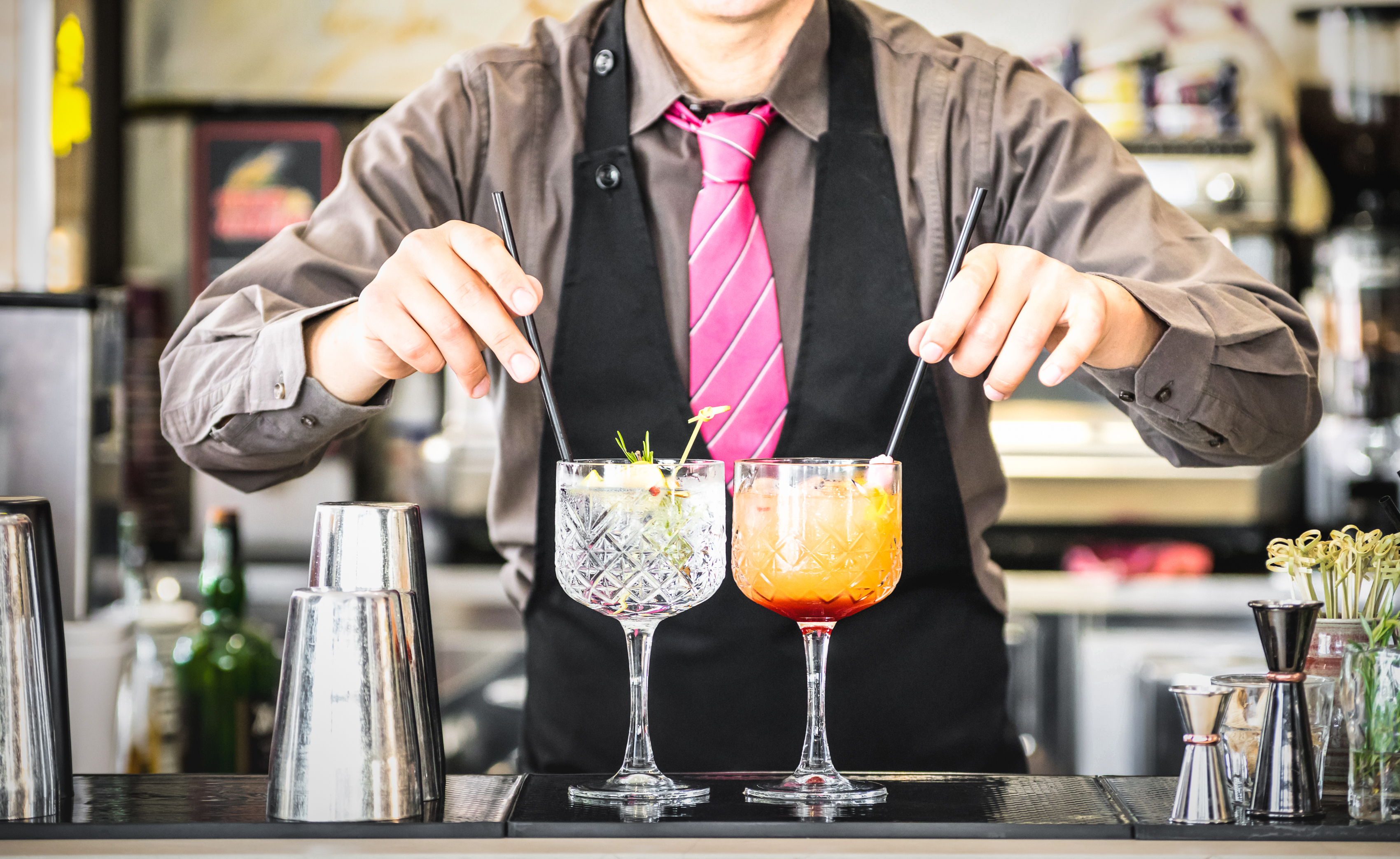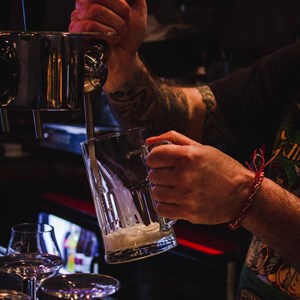

Indonesia’s sprawling capital is one of Southeast Asia's fastest-growing, most chaotic, and exciting places. It is the gateway to a vast, vibrant, and varied island nation home to dozens of fascinating cultures. Formerly the colonial capital of the Dutch East Indies, when it was known as Batavia, Jakarta has grown from its original seaport district into a huge modern conurbation of high-rise hotels and apartments, thronged shopping malls, and wide, crowded avenues.
The City
Jakarta is a city of contrasts, where colonial-era streets sit alongside soaring high-rises and sprawling suburbs stretch in every direction. The city’s core is Taman Merdeka, or Independence Square, dominated by the 132 m National Monument topped with a glittering stylised flame. Nearby, Kota Tua (Old Town) preserves traces of Dutch Batavia, with Taman Fatahillah at its centre, surrounded by old buildings and museums.
Glodok, Jakarta’s Chinatown, is lively and colourful, mixing long-established markets with newer cafés and shops. At Sunda Kelapa, the old port, wooden schooners still carry cargo between Jakarta and the outlying islands, alongside warehouses dating back to the colonial era. South of the centre, Jalan Jaksa offers a jumble of budget guesthouses, tour offices, and souvenir shops, reflecting the city’s enduring role as a hub for travellers.
Today, Jakarta continues to grow and change, balancing modernity with history. Despite its sprawl and traffic, the city remains a place of energy and contrast, where past and present sit side by side, giving visitors a glimpse of Indonesia’s evolution in one bustling metropolis.
Do & See
Jakarta mixes old and new in a way that feels surprisingly seamless. Restored colonial streets sit alongside modern towers, and there’s plenty to see whether you’re after history, art, or just a good wander. Start at the National Monument, the city’s proud symbol of independence, and take in the skyline from its viewing deck. Then head to Kota Tua, the Old Town, where museums around Fatahillah Square trace Jakarta’s story from Dutch rule to today. For a change of pace, dive into a flavourful journey in Glodok, the city’s Chinatown. Art fans should make time for Museum MACAN’s contemporary shows, while those after some green space can unwind at Ragunan Zoo or in the quiet gardens of Taman Suropati.
Dining
Jakarta’s food scene reflects the mix of people who’ve made the city their home. With migrants from across the Indonesian archipelago, the range of flavours here is huge. You’ll find staples like noodles and nasi goreng (fried rice) on every corner, but there’s plenty more to discover.
Most meat dishes feature chicken or beef, as pork is less common in this mostly Muslim city. Upscale restaurants, often tucked inside hotels, cater to those after a refined meal, but the real heart of Jakarta’s food culture lies on the streets — in smoky stalls and late-night carts serving quick, flavour-packed plates that are as affordable as they are satisfying.
Cafés
Café culture is something that the Indonesian capital has developed in the past 30 years, though hawker stalls and street food still remain the most popular option among locals and tourists alike.
As the coffee culture took over, street vendors started selling instant brews and international brands of cafeterias began popping up at a fast pace, making the coffee routine an unmissable tradition throughout the diverse Jakarta.
Bars & Nightlife
Jakarta is a city that truly comes alive after dark, offering everything from easygoing neighbourhood pubs to high-energy clubs and karaoke lounges. As the sun sets, locals and visitors alike spill into the city’s maze of streets, where upmarket bars and nightspots buzz with music, conversation, and cocktails late into the night.
Shopping
Over the past decade, Jakarta has transformed into a true shopping hub, with sleek, air-conditioned malls springing up across the city. For souvenirs, look for traditional pieces such as ikat and batik textiles, Balinese wood carvings, or antique pottery, though it’s worth noting that some 'colonial antiques' are reproductions.
Tourist Information
Soekarno–Hatta International Airport (CGK)
Soekarno–Hatta International Airport (CGK) is Jakarta’s main gateway, located about 30 km northwest of the city centre. The journey typically takes between 45 minutes and 1.5 hours, depending on traffic. Travellers can reach the city via the Airport Rail Link, which connects directly to BNI City Station in central Jakarta, or by DAMRI airport buses serving major areas and hotels. Taxis and ride-hailing apps such as Grab and Gojek are also widely available from all terminals.
Address: Soekarno–Hatta International Airport
Email:
Phone:
Website:
More Information:
Passport/Visa
Indonesia offers various ways for travellers to enter the country depending on their nationality, residency, and length of stay. The most common options are a visa exemption, a visa on arrival (VOA), and a consular visa. Each option has its own conditions and required documents.
Visa Exemption applies to nationals from select countries, such as Brunei, Cambodia, Colombia, East Timor, Hong Kong, Laos, Malaysia, Myanmar, the Philippines, Singapore, Suriname, Thailand, Vietnam, Brazil, and Turkey. These travellers can enter Indonesia for tourism without paying a visa fee, but the stay is limited to 30 days and cannot be extended. The following documents are required: a valid passport, a return or onward ticket, payment of the Bali tourist tax (if visiting Bali), and completion of the SATUSEHAT health declaration. Entry is allowed by air, land, and sea.
Visa on Arrival (VOA) is available to citizens of around 75 nationalities. It allows travellers to enter Indonesia for up to 30 days, with the possibility of extending the stay once. VOA can be obtained at the airport or applied for online prior to travel. It comes with a fee. Required documents include: the visa itself (VOA or eVOA), a valid passport, proof of departure (return or onward ticket), payment of the Bali tourist tax (if applicable), and the SATUSEHAT health declaration. This option also permits entry via air, land, or sea.
Tourist Visa (B211A) is needed for nationalities that are not eligible for visa exemption or VOA. It is a consular visa obtained either online or through an Indonesian embassy, and allows travellers to stay up to 60 days. Travellers must present a valid passport, a visa, a return or onward ticket, payment of the Bali tourist tax, and the SATUSEHAT health declaration. This option suits travellers who require a longer stay or come from countries not listed in the other categories.
For Indonesian nationals, travel is straightforward: only a valid passport and the SATUSEHAT health pass are required. For foreign residents of Indonesia, permanent residence proof must be shown along with the passport and health pass.
Travellers are encouraged to complete the SATUSEHAT form before departure to avoid delays upon arrival. If visiting Bali, make sure to pay the tourist tax online or through a registered provider. Although yellow fever vaccination isn’t commonly required, it may be requested if entering from a country listed as at-risk by the WHO.
Address:
Email:
Phone:
Website:
More Information:
Taxi
Taxis are readily available in Jakarta, with the most reliable taxi companies including Silver Bird and Blue Bird. Blue Bird taxis are easily recognisable by their blue colour, while Silver Bird taxis are black and offer a more luxurious experience. While it's possible to hail taxis on the street, using a reputable company is recommended to avoid scams. Ride-hailing apps like Grab and Gojek are also widely used in Jakarta, offering both car and motorcycle options.
Address:
Email:
Phone:
Website:
More Information:
Public Transport
Jakarta’s public transport network offers several options for visitors. The TransJakarta BRT is a bus rapid transit system that runs on dedicated lanes, helping you avoid traffic. The MRT (Mass Rapid Transit) and LRT (Light Rail Transit) are rail systems connecting the city centre with southern districts, while the KRL Commuter Line links Jakarta with suburban areas, including attractions like Kota Tua (Old Town) and Monas.
Travellers can use the JakLingko card across buses, trains, and the MRT for convenience. Ride-hailing apps like Grab and Gojek provide flexible car and motorcycle options. Peak hours can still be busy, but these combined choices make exploring Jakarta manageable.
Address:
Email:
Phone:
Website: www.jaklingkoindonesia.co.id/en
More Information:
Pharmacy
Pharmacies in Jakarta are easy to find in major districts and malls across the city. Look for signs with the word 'Apotek'. Major chains like Kimia Farma, Guardian, Watsons, and Century are the most reliable, offering prescription and over-the-counter medications, vitamins, and basic health products.
Address:
Email:
Phone:
Website:
More Information:
Post
Post offices in Jakarta typically operate from 8am to 4pm, Monday through Friday, and from 8am to noon on Saturdays, offering a range of services including mail and parcel delivery and financial services such as money transfers and bill payments.
Address: Kantor Pos Besar - Jl. Lap. Banteng Utara No.1, Ps. Baru, Kecamatan Sawah Besar, Kota Jakarta Pusat, Daerah Khusus Ibukota Jakarta
Email:
Phone: +62 21 3520037
Website:
More Information:
Telephone
Country code: +62
Area code: 21
Address:
Email:
Phone:
Website:
More Information:
Electricity
Indonesia operates on a 230V voltage and 50Hz frequency. The power sockets are Type C and Type F, which are the same types commonly used in most European countries.
Address:
Email:
Phone:
Website:
More Information:


